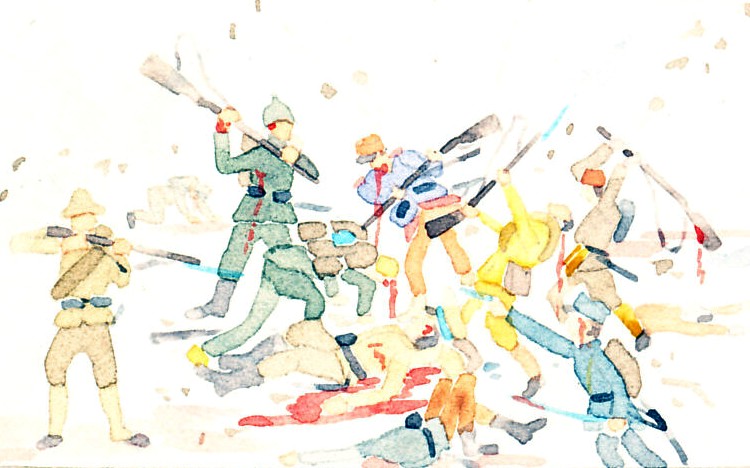French portrait postcard of Sir John French in Uniform, Commander in Chief of the British Army in France at the beginning of the war.

Sir John French
Commandant en Chef de l´Armée Britannique
d'Après L'Illustration
Commander in Chief of the British Army
After L'Illustration
Reverse:
Postmarked Geneva 1915
Ma chere Claire
Je suis les Ordres de M. Gantes et vous repond d'apres sa dictées
En repons a vos vers charmants qui m'ont touchée profondement Je repond soyez sure bien tendrement en vous exprimant mes voeux les plus Ardents. M. Gantes
Vous les faites mieux que lui.
Votre petit Margot
My dear Claire
I am commanded by Mr. Stretchers and respond to you after his dictation
In response to your charming verses that touched me deeply, I answer be safe, tenderly expressing my wishes to you most ardently, Mr. Stretchers
You can do better than him.
Your little Margot
Other views:
Larger, Back
